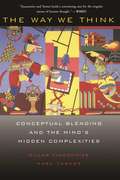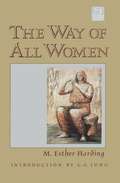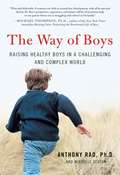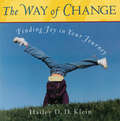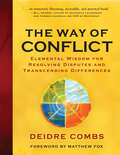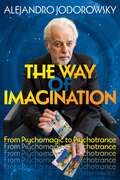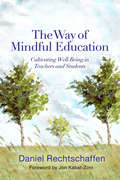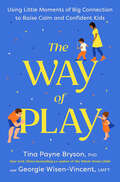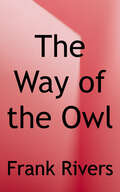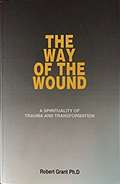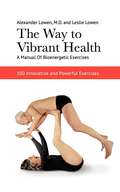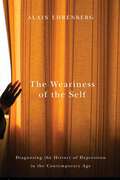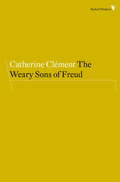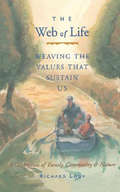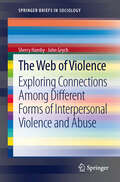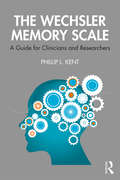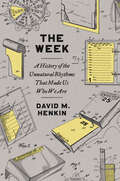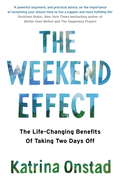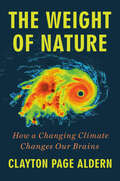- Table View
- List View
The Way To Be Free: Talks and Conversations with Students
by John Godolphin BennettThe central theme of this book is the difference between "work from the mind" and "work from the essence." Work from the mind produces skillful prisoners of illusion, but prisoners all the same. Work from the essence is the way to be free. It is centered in the heart. This book is compiled from conversations that took place between Bennett and his students, and includes several sections from previously unpublished notes that were to be used in a definitive work on a complete system of Gurdjieff study. It includes an essay on the "Octave of Salvation," written in the 1940s, which shows Bennett's remarkable familiarity with the spiritual traditions of Buddhism, Hinduism and Christianity and which is a significant treatise in its own right. Bennett was a master of structural thinking but always remained closely in touch with the concrete detail of experience. This 2006 edition has a new foreword by Anthony Blake and was compiled and edited by Anthony Blake.
The Way We Never Were: American Families And The Nostalgia Trap
by Stephanie CoontzThe Way We Never Were examines two centuries of American family life and shatters a series of myths and half-truths that burden modern families. Placing current family dilemmas in the context of far-reaching economic, political, and demographic changes, Coontz sheds new light on such contemporary concerns as parenting, privacy, love, the division of labor along gender lines, the black family, feminism, and sexual practice.
The Way We Think: Conceptual Blending and the Mind's Hidden Complexities
by Mark Turner Gilles FauconnierIn its first two decades, much of cognitive science focused on such mental functions as memory, learning, symbolic thought, and language acquisition --the functions in which the human mind most closely resembles a computer. But humans are more than computers, and the cutting-edge research in cognitive science is increasingly focused on the more mysterious, creative aspects of the mind. The Way We Think is a landmark synthesis that exemplifies this new direction. The theory of conceptual blending is already widely known in laboratories throughout the world; this book is its definitive statement. Gilles Fauconnier and Mark Turner argue that all learning and all thinking consist of blends of metaphors based on simple bodily experiences. These blends are then themselves blended together into an increasingly rich structure that makes up our mental functioning in modern society. A child's entire development consists of learning and navigating these blends. The Way We Think shows how this blending operates; how it is affected by (and gives rise to) language, identity, and concept of category; and the rules by which we use blends to understand ideas that are new to us. The result is a bold, exciting, and accessible new view of how the mind works.
The Way of All Women: A Psychological Interpretation
by Esther HardingAcclaimed as one of the best works available on feminine psychology from the time it first appeared in 1933, The Way of All Women discusses topics such as work, marriage, motherhood, old age, and women's relationships with family, friends, and lovers. Dr. Harding, who was best known for her work with women and families, stresses the need for a woman to work toward her own wholeness and develop the many sides of her nature, and emphasizes the importance of unconscious processes.
The Way of Boys
by Anthony Rao Michelle SeatonThe problem isn't with boys, it's with our expectations of them In a book that's part advice and part exposÉ, psychologist and expert on boyhood development Dr. Anthony Rao challenges some of the potentially harmful assumptions, attitudes, and behaviors we've developed toward young boyhood over the last few decades. This is not an indictment of medication therapies--in some important instances, Dr. Rao argues that medication is appropriate and necessary. Rather, The Way of Boys is a celebration of natural, constructive boyhood development and an expert, definitive handbook on what to look for and expect in normal growth. Ask yourself these questions: Is his behavior serious enough to interfere with functioning? Does it keep him from sleeping, eating, attending school, or staying safe? Does it persist over a few weeks or more? Does it show itself more than a few isolated times per day? Does it happen in different settings? Has it been reported by different people? If your answer is yes to any of these, your son may have symptoms that need further assessment by a pediatrician or other qualified developmental specialist. But a yes answer doesn't mean your son has a lifelong disorder or that the first line of defense is medication. Boys are being bombarded with a slew of diagnoses--ADHD, Asperger's, bipolar disorder--at an alarming rate and at younger ages. The Way of Boys urges parents, educators, pediatricians, psychologists, and other developmental experts to reevaluate and significantly change how we deal with our youngest boys. It's time we stopped trying to "fix" young boys. When parents understand the wide spectrum for normal boy development, they can successfully communicate with their son--and everyone in their son's life--and help him grow into a healthy, smart, strong man.
The Way of Change
by Hailey D. D. KleinHailey Klein's system for change is different from most of those based on visualisation because you don't begin with what you want: in order to access the energy around you, you begin with what is. Klein's simple three-step programme includes: Stage 1 - Separation/Awareness/Understanding; Stage 2 - Intention/Truth/Acceptance; Stage 3 - Action/Change/Momentum.
The Way of Conflict: Elemental Wisdom for Resolving Disputes and Transcending Differences
by Deidre CombsThe Way of Conflict teaches strategies for using ancient wisdom and modern techniques to confidently engage in any dispute and reach a balanced resolution. This groundbreaking book integrates the wealth of conflict skills found throughout the world’s major religious and indigenous traditions with the latest scientific systems and conflict resolution theory. It uses the cross-cultural metaphor of the four natural elements — earth, water, fire, and air — to identify the innate conflict personality types and propose a productive path through the chaos of conflict. Combining her extensive experience as a licensed mediator and corporate trainer with wisdom gained from years of spiritual study, Combs uses assessment tests, anecdotes from indigenous and religious traditions, and illustrative folktales to show how to quickly assess a conflict and implement an appropriate resolution strategy.
The Way of Imagination: From Psychomagic to Psychotrance
by Alejandro Jodorowsky• Explains the theoretical basis behind psychomagic, Jodorowsky&’s shamanic healing technique• Details the author&’s technique of &“psychotrance&” to access his subconscious mind to discover the most suitable psychomagic remedy• Shares passionate correspondence between Jodorowsky and patients and admirers who have successfully used psychomagic methods for personal healingThrough films, books, comics, and art spanning seven decades, legendary filmmaker Alejandro Jodorowsky has offered his singular surrealistic perspective on the fundamentally dreamlike nature of reality. This perspective also underlies his healing technique known as psychomagic, which uses the symbolism of the unconscious to understand and mend reality as if it were a dream.In The Way of Imagination, the master offers a detailed exploration of the mechanisms by which psychomagic works to heal our most pressing emotional and spiritual wounds. He describes the initial stages of psychomagic&’s development into a practice and how he crafted the first psychomagic prescriptions to speak directly to the subconscious through the language of dreams. Above all, Jodorowsky explains, psychomagic is a therapy of action, rather than one of words.Sharing passionate correspondence between himself and patients and admirers in the form of 84 letters, the author demonstrates how people have successfully used psychomagic to make profound changes in their lives. He shares detailed accounts of how he uses Tarot readings to determine a diagnosis as well as how he uses a trance state—what he calls &“psychotrance&”—to access his subconscious mind to discover the most suitable psychomagic remedy.Presenting a complete immersion in the techniques of psychotrance and psychomagic, this guide show how the dreamlike nature of reality can help us move forward on the path to healing.
The Way of Mindful Education: Cultivating Well-Being in Teachers and Students
by Jon Kabat-Zinn Daniel RechtschaffenA new educational paradigm for youth mindfulness. "If you are a teacher, or an educator, or involved in school administration and curriculum development, the book you hold in your hands has the potential to transform your life, the lives of your students, and the life of the school itself, as well as education in America."--Jon Kabat-Zinn, PhD, from the Foreword With attention spans waning and stress on the rise, many teachers are looking for new ways to help students concentrate, learn, and thrive. The Way of Mindful Education is a practical guide for cultivating attention, compassion, and well-being not only in these students, but also in teachers themselves. Packed with lesson plans, exercises, and considerations for specific age groups and students with special needs, this working manual demonstrates the real world application of mindfulness practices in K-12 classrooms. Part I, Why Mindful Education Matters, explains what mindfulness is, the science behind its benefits for students and educators, and the inspiring work that is already underway in the Mindful Education movement. In Part II, Begin with Yourself, we are reminded that in order to teach mindfully, we need to be mindful. Here teachers will learn the when, where, and how of mindfulness so they can effectively embody its practices with their students. Mindfulness practices offer teachers self-care and attention skills that prepare them to teach with greater energy and mastery. Discover how simple exercises can help manage stress, focus attention, develop compassion, and savor positive experiences in everyday life. Part III, Cultivating a Mindful Classroom, explores the qualities of a mindful teacher, the ingredients of a mindful learning environment, and helpful skills for appropriate, supportive work with cultural diversity, student stress and trauma, and varying age groups and developmental stages. Finally, in Part IV, Mindful Education Curriculum, we learn eighteen ready-to-use mindfulness lessons for use in schools. These practical exercises, designed to foster skills like embodiment, attention, heartfulness, and interconnectedness, can be readily adapted for any age group and population, and the author draws from his extensive personal experience to offer a wealth of tips for introducing them to students in real-time. Decades of research indicate the impressive benefits of mindfulness in social, emotional, and cognitive development, and as an antidote to emotional dysregulation, attention deficits, and social difficulties. This book invites teachers, administrators, and anyone else involved in education to take advantage of this vital tool and become purveyors of a mindful, compassionate, ethical, and effective way of teaching.
The Way of Play: Using Little Moments of Big Connection to Raise Calm and Confident Kids
by Tina Payne Bryson Georgie Wisen-VincentThe simple way to help your kids face their fears, handle big emotions, and bolster their social skills—from the New York Times bestselling co-author of The Whole-Brain Child and a renowned play therapist &“A parenting guide as useful as it is scientifically sound, The Way of Play is a gift for anyone who cares about human development and the growth-promoting importance of having fun in life!&”—Daniel J. Siegel, MD Most parents understand that free, unstructured playtime is great for children&’s development. What they may not know is that playful interaction with parents is also a powerful way for kids to cultivate healthy emotional development and resilience. Kids often want their parents to play with them, but many parents don&’t know how to play or see it only as an (often boring) way to kill time. Playing with your kids doesn&’t have to mean enrolling in countless parent-and-me classes or getting on all fours and making toy car sounds; the little daily moments together can make the most impact. In The Way of Play, world-renowned pediatric therapists and play experts Tina Payne Bryson and Georgie Wisen-Vincent break down seven simple, playful techniques that harness this caregiving magic in only a few minutes each day: • Leaning in to emotions helps children let go of anxieties, drama, and chaotic behavior.• Tuning in to the body teaches children to practice the art of surfing sensory waves.• Storytelling promotes better problem-solving.• Thinking out loud fosters calmer thinking and stronger communication with parents, siblings, and everyone else. Full of science-backed research, real-life stories, and charming line illustrations to bring this novel advice to life, The Way of Play will help you nurture your kids and encourage them to become calm listeners, cooperative problem solvers, and respectful communicators. Just as important, it will help your whole family have more fun together and build stronger relationships.
The Way of the Owl: Succeeding with Integrity in a Conflicted World
by Frank RiversMartial artist Frank Rivers shows readers how to successfully negotiate the daily strife in their business and personal lives. Using the owl's bearing and conduct as a model for effectively handling conflict, he offers fresh and thoughtful strategies for confronting life's most complex challenges with poise and integrity.
The Way of the Wound: A Spirituality of Trauma and Transformation
by Robert Grant<p>Countless victims of childhood abuse, domestic violence, violent crime, rape, war, life-threatening illness and natural disaster struggle with the impact of their injuries. Former ways of making sense have been injured or destroyed. The lives of many are without meaning or direct. Unless helped to integrate the significance of their traumatic wounds into more comprehensive approaches to self, life and God victims run the risk of addiction, wasted potential, numerous psychological and physical problems, as well as commitments to distorted spiritualities. Victims of trauma are asked to embark on a path of healing that mystics, shamans and mythic heroes have been walking for thousands of years. The only difference is that the path is contemporary and, therefore, potentially more conscious. Trauma provides a modern access to this spiritual path and can initiate powerful experiences of conversion. If properly supported and accompanied trauma has the power to transform all facets of reality. <p><i>The Way of the Wound</i> lays out a path of healing, along with the central issues that survivors encounter at every crucial point along the way. This work offers direction to every victim of trauma wanting to move to the next level of healing. </p>
The Way to Vibrant Health: A Manual of Bioenergetic Exercises
by Alexander LowenThe Way to Vibrant Health, now in its 3rd printing, represents over 20 years of Bioenergetic body-psychotherapy techniques.These unique exercises are designed to reduce muscular tension and promote well-being, allowing you to feel more joy and vibrancy. Bioenergetics is a way of understanding the human personality in terms of the body and its energetic processes. Bioenergetic Analysis is a form of psychotherapy that combines work with the mind and the body to help people resolve their emotional problems, and realize their potential for vibrant health and pleasure in all aspects of their lives. Bioenergetic Exercises help you experience: • Natural breathing as a total body respiratory wave. • Unblocking of the body's holding patterns that restrict your energetic potential. • Increasing your capacity for pleasure and feeling.
The Weariness of the Self: Diagnosing the History of Depression in the Contemporary Age
by Alain EhrenbergA history of depression that describes the illness across social history and within psychiatry.
The Weary Sons of Freud
by Catherine ClementIn this passionately written and controversial book, first published in 1978, Catherine Clément, Communist, feminist and analysand, asks what the social function of psychoanalysis should be and condemns what it has become.She attacks psychoanalysis as an institution disdainful of treatment and cure, serving the interests of a new intelligentsia, the nouveaux riches of a narcissistic literary culture and publishing industry. Contrasting the insights of psychoanalytic theory to the obsessive imitations of Jacques Lacan by those who followed him as a practitioner-trainer, she offers an anthropological perspective and a political critique of Parisian psychoanalysis as a profession. How has the attentive ear of the analyst become deaf to questions about the social and political meaning of his or her work? Does a woman who is both a socialist and analysand necessarily hear such questions more clearly and answer them differently? Clement reflects on her own history, the history of psychoanalysis and the history of the French left to demonstrate what an activist and feminist restoration of psychoanalysis could be.From the Trade Paperback edition.
The Web of Life: Weaving the Values That Sustain Us
by Richard LouvWith great warmth and wisdom, award-winning journalist Richard Louv explores the delicate strands of our lives: family, friendship, community, nature, time, and spirit.
The Web of Violence
by John Grych Sherry HambyThere is an increasing appreciation of the interconnections among all forms of violence. These interconnections have critical implications for conducting research that can produce valid conclusions about the causes and consequences of abuse, maltreatment, and trauma. The accumulated data on co-occurrence also provide strong evidence that prevention and intervention should be organized around the full context of individuals' experiences, not narrowly defined subtypes of violence. Managing the flood of new research and practice innovations is a challenge, however. New means of communication and integration are needed to meet this challenge, and the Web of Violence is intended to contribute to this process by serving as a concise overview of the conceptual and empirical work that form a basis for understanding the interconnections across forms of violence throughout the lifespan. It also offers ideas and directions for prevention, intervention, and public policy. A number of initiatives are emerging to integrate the findings on co-occurrence into research and action. The American Psychological Association established a new journal, Psychology of Violence, which is a forum for research on all types of violence. Sherry Hamby is the founding editor and John Grych is associate editor and co-editor of a special issue on the co-occurrence of violence in 2012. Dr. Hamby also is a co-investigator of the National Survey of Children's Exposure to Violence (NatSCEV), which has drawn attention to polyvictimization. Polyvictimization is a focus of the U.S. Department of Justice's Defending Childhood Initiative and has recently been featured in calls for grant proposals by the Office of Victims of Crime and National Institutes for Justice.
The Wechsler Memory Scale: A Guide for Clinicians and Researchers
by Phillip L. KentThe Wechsler Memory Scale (WMS) is one of the most popular memory scales in the United States and much of the English-speaking world. This is the first book to systematically trace the evolution of the instrument in terms of its content and structure, whilst providing a guide to clinical interpretation and discussing its many research uses. The Wechsler Memory Scale: A Guide for Clinicians and Researchers provides a comprehensive review and synthesis of the literature on all the major editions and revisions of the WMS, including the Wechsler Memory Scale-I, Wechsler Memory Scale-Revised, Wechsler Memory Scale-III, and the Wechsler Memory Scale-IV. It discusses major factor analytic studies of each version of the test, clinical interpretation of each version including studies on malingering, uses of each version with special populations, and makes suggestions for the next revision (i.e, the WMS-V). This book is designed to be a go-to source for all graduate students, clinicians and researchers who use the Wechsler Memory Scale, as well as to institutions offering formal training in adult clinical and neuropsychological assessment.
The Wedding Promise
by Emma HanniganA Number One bestseller - a heartwarming, uplifting novel about family and new beginnings.'Remember the promise I made to you at our wedding...'Restoring a Spanish villa brings Shelly back to the place she and her husband once loved, fulfilling the promise he made that they would return. But as plans to transform the villa into a romantic wedding venue take shape, Shelly discovers her grown-up children may need the move more than she does.Her son Jake has begun to question the things he values most: his career as a pilot, his relationship with his girlfriend. Could Spain offer him the change he's seeking? Shelly's daughter Leila arrives with a new-born baby in tow, but then hears some startling news she wasn't expecting.As Casa Maria takes its first booking, will it turn out to be more than a romantic promise made all those years ago? Perhaps a second chance at new beginnings?
The Week: A History of the Unnatural Rhythms That Made Us Who We Are
by David M HenkinAn investigation into the evolution of the seven-day week and how our attachment to its rhythms influences how we live We take the seven-day week for granted, rarely asking what anchors it or what it does to us. Yet weeks are not dictated by the natural order. They are, in fact, an artificial construction of the modern world. With meticulous archival research that draws on a wide array of sources—including newspapers, restaurant menus, theater schedules, marriage records, school curricula, folklore, housekeeping guides, courtroom testimony, and diaries—David Henkin reveals how our current devotion to weekly rhythms emerged in the United States during the first half of the nineteenth century. Reconstructing how weekly patterns insinuated themselves into the social practices and mental habits of Americans, Henkin argues that the week is more than just a regimen of rest days or breaks from work, but a dominant organizational principle of modern society. Ultimately, the seven-day week shapes our understanding and experience of time.
The Weekend Effect: The Life-Changing Benefits of Taking Two Days Off
by Katrina Onstad'A powerful argument, and practical advice, on the importance of reclaiming your leisure time to live a happier and more fulfilling life' - Gretchen Rubin, New York Times bestselling author of Better Than Before and The Happiness ProjectEncroaching work demands - coupled with domestic chores, overbooked schedules, and the incessant pinging of our devices - have taken a toll on what used to be our free time: the weekend. With no space to tune out and recharge, every aspect of our lives is suffering: our health is deteriorating, our social networks (the face-to-face kind) are dissolving and our productivity is down. The notion of working less and living more has given way to the belief that you must be 'on' 24/7.Tired of suffering from Sunday-night let down, award-winning journalist Katrina Onstad pushes back against this all-work-no-fun ethos. Onstad follows the trail of people, companies and countries vigilantly protecting their time off for joy, adventure and meaning, and digs into the history, positive psychology and cultural anthropology of the great missing weekend. The Weekend Effect reveals that taking back those precious forty-eight hours is the key to increasing joy, creativity, productivity and success. It will be your persuasive, practical and much-needed guide to reclaiming your time off and, ultimately, saving yourself.
The Weekend: An unforgettable story of female friendship by the bestselling author of the Booker Prize-shortlisted Stone Yard Devotional
by Charlotte Wood'So great I am struggling to find the words to do it justice' Marian KeyesA Book of the Year for The Times, Observer, Independent and Good Housekeeping'A rare pleasure' Sunday Times'Riveting' Elizabeth Day'A perfect, funny, insightful, novel about women, friendship, and ageing' Nina Stibbe'A lovely, lively, intelligent, funny book' Tessa Hadley'Glorious . . . Charlotte Wood joins the ranks of writers such as Nora Ephron, Penelope Lively and Elizabeth Strout' GuardianSylvie, Jude, Wendy and Adele have been friends for decades, but when Sylvie dies, the ground shifts dangerously for the remaining three.These women couldn't be more different: Jude, a once-famous restaurateur with a long-standing affair with a married man; Wendy, an acclaimed feminist intellectual; Adele, a former star of the stage, now practically homeless. Struggling to recall exactly why they've remained close all these years, the grieving women gather for one last weekend at Sylvie's old beach house. But fraying tempers, an elderly dog, unwelcome guests and too much wine collide in a storm that threatens to sweep away their friendship for good.
The Weight Escape: Stop fad dieting, start losing weight and reshape your life using cutting-edge psychology
by Russ Harris Ann Bailey Joseph CiarrochiToday's the day to start making real changes. Diet fads and fitness trends may offer the prospect of losing weight, but they rarely work out long-term. The Weight Escape is different. Using the psychological science of ACT - Acceptance and Commitment Therapy - Dr Russ Harris, medical doctor and author of The Happiness Trap, psychological practitioner Ann Bailey and scientist Joseph Ciarrochi will help you make the lasting changes you want. Focusing on the mental barriers that can stop us setting and achieving our goals, it promotes a holistic approach to wellbeing and weight loss - one that goes beyond meal plans and calorie counting to give a deeper meaning and mindfulness to how you live and what you eat. Through practical exercises, quizzes and personal stories, it shows you how to: · Set goals and give direction to your life · Overcome destructive habits and exercise self-control · Deal with cravings and stressful situations · Develop self-acceptance. Get the weight-loss results you want - and so much more.
The Weight of Nature: How a Changing Climate Changes Our Brains
by Clayton Page AldernA New York Times Editors' ChoiceA Next Big Idea Club and Sierra Magazine Must-Read BookA Behavioral Scientist&’s Notable Book of 2024A Financial Times Best Summer BookA Bookshop Most Notable Science Book of 2024A deeply reported, eye-opening book about climate change, our brains, and the weight of nature on us all.The march of climate change is stunning and vicious, with rising seas, extreme weather, and oppressive heat blanketing the globe. But its effects on our very brains constitute a public-health crisis that has gone largely unreported. Based on seven years of research, this book by the award-winning journalist and trained neuroscientist Clayton Page Aldern, synthesizes the emerging neuroscience, psychology, and behavioral economics of global warming and brain health. A masterpiece of literary journalism, this book shows readers how a changing environment is changing us today, from the inside out.Aldern calls it the weight of nature.Hotter temperatures make it harder to think clearly and problem-solve. They increase the chance of impulsive violence. Immigration judges are more likely to reject asylum applications on hotter days. Umpires, to miss calls. Air pollution, heatwaves, and hurricanes can warp and wear on memory, language, and sensory systems; wildfires seed PTSD. And climate-fueled ecosystem changes extend the reach of brain-disease carriers like mosquitos, brain-eating amoebas, and the bats that brought us the mental fog of long COVID.How we feel about climate change matters deeply; but this is a book about much more than climate anxiety. As Aldern richly details, it is about the profound, direct action of global warming on our brains and behavior—and the most startling portrait yet of unforeseen environmental influences on our minds. From farms in the San Joaquin Valley and public schools across the United States to communities in Norway&’s Arctic, the Micronesian islands, and the French Alps, this book is an unprecedented portrait of a global crisis we thought we understood.
The Weight of Our Sky
by Hanna AlkafA music loving teen with OCD does everything she can to find her way back to her mother during the historic race riots in 1969 Kuala Lumpur, Malaysia, in this heart-pounding literary debut.Melati Ahmad looks like your typical movie-going, Beatles-obsessed sixteen-year-old. Unlike most other sixteen-year-olds though, Mel also believes that she harbors a djinn inside her, one who threatens her with horrific images of her mother&’s death unless she adheres to an elaborate ritual of counting and tapping to keep him satisfied. A trip to the movies after school turns into a nightmare when the city erupts into violent race riots between the Chinese and the Malay. When gangsters come into the theater and hold movie-goers hostage, Mel, a Malay, is saved by a Chinese woman, but has to leave her best friend behind to die. On their journey through town, Mel sees for herself the devastation caused by the riots. In her village, a neighbor tells her that her mother, a nurse, was called in to help with the many bodies piling up at the hospital. Mel must survive on her own, with the help of a few kind strangers, until she finds her mother. But the djinn in her mind threatens her ability to cope.


